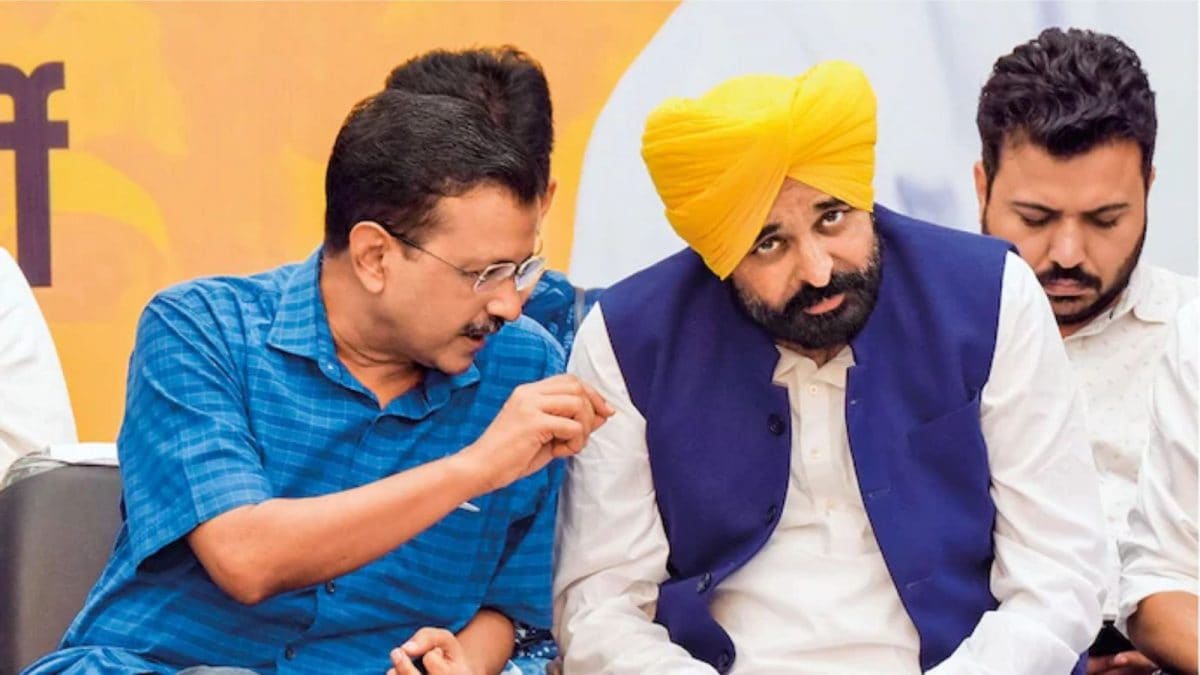 |
|
The political landscape of Punjab is currently experiencing considerable turbulence, with allegations of internal dissent within the ruling Aam Aadmi Party (AAP) and counter-accusations from the opposition Congress. Punjab Chief Minister Bhagwant Mann's recent dismissal of these claims, coupled with his pointed remarks directed at the Congress, highlights the escalating tensions and strategic maneuvering within the state's political arena. Mann's response, which involved questioning the Congress's own performance in the recent Delhi Assembly elections, underscores the intensely competitive nature of Punjab's political climate and the parties' efforts to gain a strategic advantage.
The core of the conflict centers on statements made by Punjab Congress leader Partap Singh Bajwa, who alleged that a significant number of AAP MLAs were in communication with the Congress and were considering switching allegiances. Bajwa's assertion that these MLAs perceived their long-term prospects as better served outside the AAP fueled speculation about potential defections and a possible weakening of the ruling party's position. This claim directly challenges the AAP's claim of strong internal unity and poses a potential threat to its governance in Punjab. Mann's immediate and forceful rebuttal is a clear indication of the AAP's determination to maintain its grip on power and discredit the opposition's claims.
Mann's strategy of deflecting the criticism by highlighting the Congress's lack of success in the Delhi Assembly elections serves as a clever rhetorical maneuver. By pointing out the Congress's comparatively poor performance, despite a slight increase in vote share, Mann aims to shift the focus away from the alleged internal divisions within the AAP and to portray the Congress as a weak and ineffective opposition. This tactic underscores the highly competitive and often acrimonious nature of Indian state-level politics, where parties utilize any available opportunity to undermine their rivals.
Beyond the immediate political implications, the situation reveals a broader trend within Indian politics—the fluidity of alliances and the frequent shifting of loyalties among MLAs. This dynamic often reflects personal ambitions, perceived opportunities for political advancement, and the evolving power dynamics within and between parties. The claims and counterclaims highlight the complexities of governing a state, the fragility of party unity, and the constant pressure parties face from both internal and external forces.
Furthermore, the mention of Arvind Kejriwal, the AAP's national convenor, and the speculation about his potential role in Punjab's politics, adds another layer of complexity to the situation. While Mann firmly dismissed the rumors about Kejriwal potentially assuming the Chief Minister's post, the very presence of such speculation underscores the potential for factionalism and the constant jockeying for power within the party. This internal dynamic is further complicated by the AAP’s recent loss in Delhi, prompting renewed scrutiny of the party’s strategies and leadership.
The political fallout from these events is likely to be significant. The allegations of dissent, even if ultimately unfounded, will likely weaken the AAP's position, at least in the short term. The Congress, meanwhile, will likely continue its efforts to exploit any perceived weaknesses within the ruling party, hoping to capitalize on any potential defections or internal conflicts. The coming months are likely to see continued political maneuvering and an intensified battle for public opinion in Punjab.
The incident highlights the challenges faced by regional parties in maintaining unity and stability in the face of opposition attacks and internal pressures. The success of the AAP in Punjab, and its ability to effectively govern the state, hinges on its ability to manage internal divisions and project an image of strength and cohesion in the face of political opponents. The events underscore the high-stakes nature of Indian state-level politics and the constant struggle for power and influence.
Source: 'Count Your MLAs In Delhi': Bhagwant Mann Jabs Congress Over Claims Of Dissent In Punjab AAP
